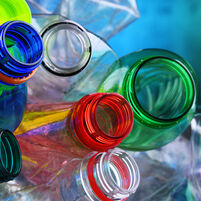Stoffe in aktiven und intelligenten Verpackungen


Active materials and articles absorb or release substances to improve the quality of packaged food and/or to extend its shelf life. They may consist of substances, for example, that absorb oxygen or liquids.
Intelligent materials and articles monitor the condition of packaged food or the surrounding environment, for example, by providing information on the freshness of a food or the temperature within the packaging.
Chemicals in food contact materials can transfer into the food and drinks we consume. EFSA’s scientists evaluate whether there are possible health risks due to such a transfer, based on migration and toxicological data.
See also:
EFSA's role
Our scientists produce scientific advice for the European Commission and national legislators on the safety of substances used or intended to be used to manufacture materials which come into contact with food.
Our expert Panel on Food Contact Materials, Enzymes and Processing Aids (CEP) is responsible for these assessments, which are based on a review of the scientific evidence and data submitted by applicants as well as the scientific literature.
EU framework
Food contact materials (FCMs) must be manufactured in compliance with EU regulations, including Good Manufacturing Practices as described in Regulation EC 2023/2006.
General requirements for all FCMs are laid down in Framework Regulation EC 1935/2004.
Regulation EC 450/2009 sets down specific requirements on the use and authorisation of active and intelligent materials and articles intended to come into contact with food.
The regulation aimed to establish an EU-wide list of substances that can be used in the manufacture of these materials: substances may only be added to the list once their safety has been evaluated for safety by EFSA.
- EU legislation on food contact materials – European Commission
For applicants
We have published guidance documents to support applicants in submitting information for our safety evaluations.
- Helpdesk: Food contact materials applications
- Food contact material applications: regulations and guidance
- Food contact material applications: frequently asked questions
- EU Guidance to the Commission Regulation (EC) No 450/2009 on active and intelligent materials and articles intended to come into contact with food
Expert group

Sachverständige im Bereich chemische Risikobewertung mit Schwerpunkt auf Lebensmittelenzymen und...